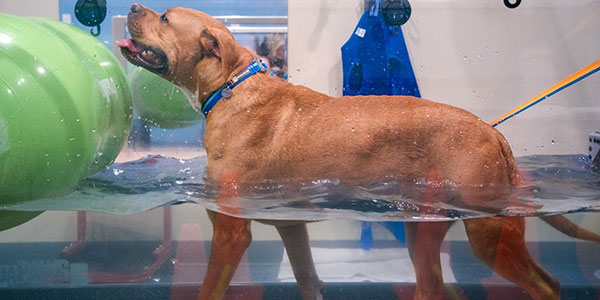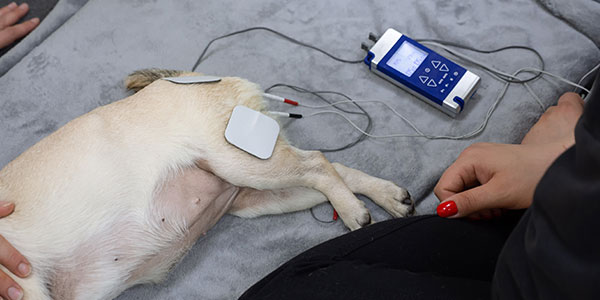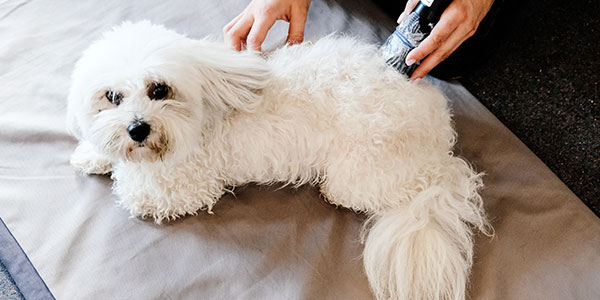
- Improve strength and mobility
- Reduce pain and inflammation
- Restore function after injury or surgery
- Prevent injury in active or aging dogs
Top Benefits of Canine Rehab
Speeds Up Recovery After Surgery or Injury
Post-operative care doesn’t stop when the stitches come out. Rehab helps dogs regain muscle strength and range of motion faster after procedures like cruciate ligament repair (TPLO), spinal surgery, or fracture repair. Controlled movement minimizes scar tissue and supports proper healing.

Manages Pain Without Relying on Medications Alone
Rehabilitation uses non-invasive techniques like laser therapy, cold therapy, and manual manipulation to ease discomfort. This is especially helpful for dogs who can’t tolerate NSAIDs or need a more holistic pain management plan.
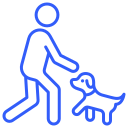
Improves Mobility in Senior Dogs
Aging doesn’t have to mean immobility. Gentle rehab exercises help older dogs stay strong and stable, reduce the risk of falls, and improve joint function. I often see dogs who were struggling to get up or walk regain confidence and independence after a few sessions.

Helps with Weight Management
Extra pounds put strain on joints, especially in dogs with arthritis or orthopedic issues. Rehab helps safely build muscle and burn calories through low-impact exercise—like underwater treadmill walking—while reducing pressure on painful joints.

Enhances Quality of Life
Pain and reduced mobility can lead to depression, anxiety, or behavior changes in dogs. As they begin to feel better and move more freely, their mood and overall well-being improve. Pet owners often tell me, “It’s like I have my old dog back.”
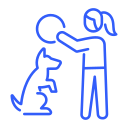
Supports Athletic Dogs and Working Breeds
Active dogs involved in agility, hunting, or service work benefit from conditioning programs that improve performance and reduce injury risk. Rehab keeps them in peak shape and helps them recover quickly from strains or overuse.

Specialized Therapies We Offer
Is Canine Rehab Right for Your Dog?
Canine rehabilitation can benefit dogs of all ages, breeds, and activity levels. It’s particularly valuable if your dog:
- Has arthritis or joint disease
- Is recovering from orthopedic or neurologic surgery
- Has suffered a soft tissue or spinal injury
- Is overweight or deconditioned
- Has mobility issues due to age
If you’re seeing changes in your dog’s ability to move, play, or enjoy daily life, rehab could be a game-changer.
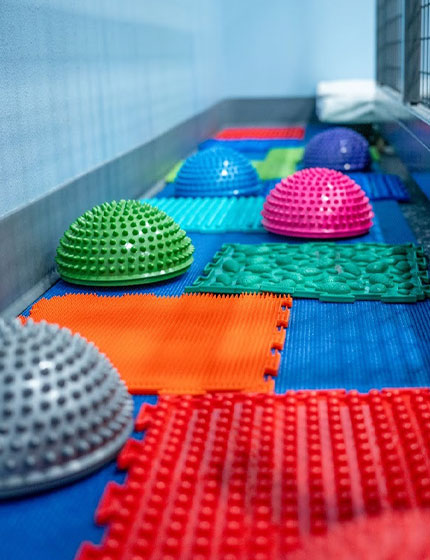
Continuing Care at Home
We help develop treatments that you can continue at home once in-office therapy is no longer necessary. It is extremely important to maintain therapy efforts for your pet to regain full function, mobility, and vitality.
For more information about our services or to schedule an appointment, contact our office today at (509) 782-3572.


